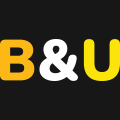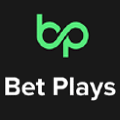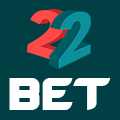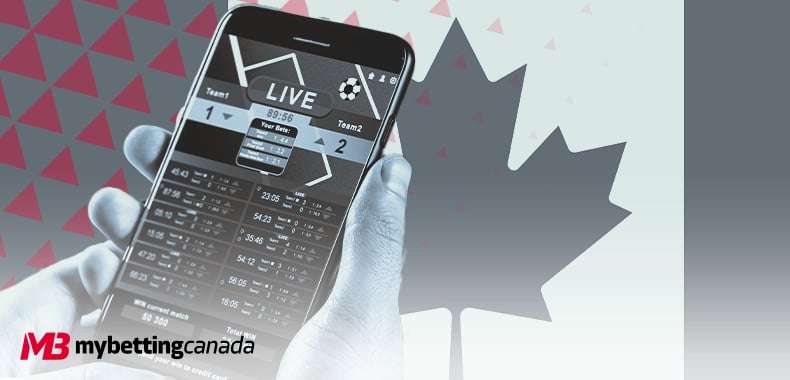Hedging
Hedging is a very common sports betting strategy where a bettor will bet on both outcomes of an event so as to minimize losses. This is common when a bettor has made a large bet on one outcome and they want to reduce their risk on that bet.
Hook
A "hook" is a half-point added to a betting line to prevent a push or tie. For example, if a point spread is set at -7, a hook would be added to create a new line of -7.5 or +6.5.
This forces bettors to choose between one team or the other, rather than allowing for a potential tie, which would result in a push and a refund of the bet. Hooks are commonly used in football and basketball betting, where games often have narrow margins of victory.
Handle
The handle is a term used to describe the total amount of money wagered on a particular event or in a particular sportsbook. The handle is important to sportsbooks because it represents their total revenue from betting.
Bettors who are able to track the handle can gain insight into which games or events are drawing the most betting action.
Handicap
A way of leveling the playing field between two teams with different abilities or performances. The sportsbook will assign a point spread, run line, or puck line to the favored team, requiring them to win by a certain number of points or goals to cover the spread and be considered the winner.
In-Play Betting
In-play betting, also known as live betting, is a form of sports betting that allows bettors to place wagers on a game or event after it has already started.
Grand Salami
Grand Salami refers to a type of bet that is placed on the total number of goals or runs scored in all games taking place on a given day in a particular league or competition.
Bettors place a wager on whether the total number of goals or runs scored in all games will be over or under a specific number set by the bookmaker.
The Grand Salami bet is often available in hockey and baseball, and it offers the opportunity to bet on multiple games at once.
Juice
Juice, which is also known as a “vig” or “vigorish” is basically the service fee or commission that sportsbooks charge to bettors for placing a bet. The vig is the reason that basic bets are set at -110 odds instead of even +100 odds.
Lines
Betting lines refer to the betting odds or point spreads that are set by a bookmaker for a particular game or event.
Moneyline
The moneyline is another common betting term that refers to a straight-up bet on the outcome of a game.
Instead of betting on the point spread, you're simply betting on which team will win the game. The odds for each team are expressed as a negative or positive number, depending on the perceived strength of the team.
For example, if the Toronto Raptors are playing the New York Knicks and the moneyline odds are -200 for the Raptors and +180 for the Knicks, this means you'd have to bet $200 on the Raptors to win $100, while a $100 bet on the Knicks would win you $180.
Over/Under
The over/under, also called the total, is a betting term used to bet on the total number of goals/points/runs scored in a game. The sportsbook sets a number, and you bet on whether the actual total will be over or under that number.
For instance, if you’re betting on a game between the Toronto Maple Leafs and Montreal Canadiens and the sportsbook has set the goal total at 6.5, you would be betting on whether you think the teams will combine to score over or under that number. A bet on the under wins with six or fewer goals, while a bet on the over wins with seven or more in this example.
Odds
The probability of an event occurring in sports betting. They indicate the potential payout to a bettor if they correctly predict the outcome of a particular event or game. Odds can be displayed in various formats, including American, decimal, and fractional.
Parlay
The parlay bet is fast becoming one of the most popular types of sports bets thanks to the endless offers and marketing sportsbooks have rolled out surrounding them. Also referred to as an accumulator, a parlay is a wager where several bets are rolled into one combined bet.
Parlays are the toughest way to win money consistently while sports betting because every leg of your parlay needs to be successful for your parlay to win.
This is the definition of a high-risk, high-reward proposition, as parlays allow for bettors to cobble together bets whose combined odds are usually very high, thereby resulting in very high payouts if they win. However, those higher odds mean that your bet is also a lot more unlikely to payout.
Pick 'Em
Pick 'Em refers to a betting situation in which there is no clear favorite or underdog. In a Pick 'Em situation, both teams or players have an equal chance of winning, and there is no point spread or handicap involved.
Prop Bet
A "Prop Bet" or a proposition bet is a wager on a specific event or occurrence within a game or match. Prop bets can be related to the game itself, such as the outcome of the coin toss in a football game, or they can be related to individual player performances, such as how many yards a quarterback will throw for in a game
Point Spread
The point spread is a betting term used to even out the betting odds for a game. Essentially, it's a way of handicapping a team to make the outcome more uncertain.
For example, let's say the Toronto Maple Leafs are playing the Montreal Canadiens. The point spread (referred to as the puck line in hockey) for the game will be -1.5 for the Maple Leafs and +1.5 for the Canadiens.
This means that if you bet on the Maple Leafs, they must win the game by two or more goals for you to win the bet. If you bet on the Canadiens, they can lose by one goal and you still win the bet.
Push
A "Push" occurs when the final result of a game or match ends in a tie according to the point spread or over/under total set by the sportsbook. When a push happens, the bettor neither wins nor loses their bet, and the money is typically returned to the bettor
Run Line
This term is used exclusively when betting on baseball and is basically baseball’s version of a point spread. However, unlike point spreads, the run line is almost always set at -1.5 and +1.5 because of the fact that runs are much harder to come by in baseball than points are in football or basketball.
The run line being at 1.5 means that the underdog needs to lose by no more than one run or win the game for a run line bet on them to hit and it also means that the favorite needs to win by two or more runs for a run line bet on them to be successful.
Betting on the Run Line allows bettors to potentially increase their payout if they believe a favored team will win by more than one run, or to minimize their risk if they bet on an underdog team to lose by no more than one run.
Teaser
A teaser is a type of parlay bet where the point spread or over/under for each game is adjusted in the bettor's favor.
For example, if the Toronto Raptors are -5.5 favorites against the Boston Celtics and the over/under for the game is set at 220, a teaser might adjust the point spread to -2.5 for the Raptors and the over/under to 215.
Teasers generally pay out less than parlay bets, but they also offer a greater chance of winning.
Steam
Steam is a betting term that refers to a sudden and significant change in the betting line or odds. This can happen for a variety of reasons, such as a key player getting injured or a sudden influx of money on one side of a bet.
Bettors who are able to identify steam early can often take advantage of favorable betting lines before the sportsbook adjusts them.
Stake
The amount of money that a bettor puts down on a bet in the hopes of winning a profit.
Wager
Another term for a bet or a gamble.

























